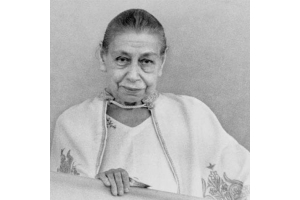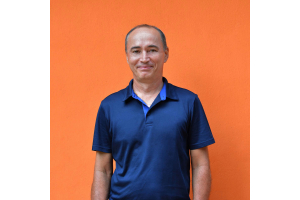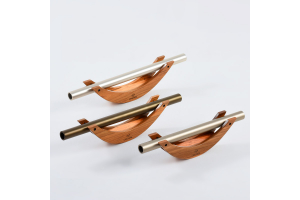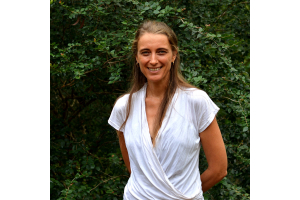Meet Aurelio, the Founder of Svaram
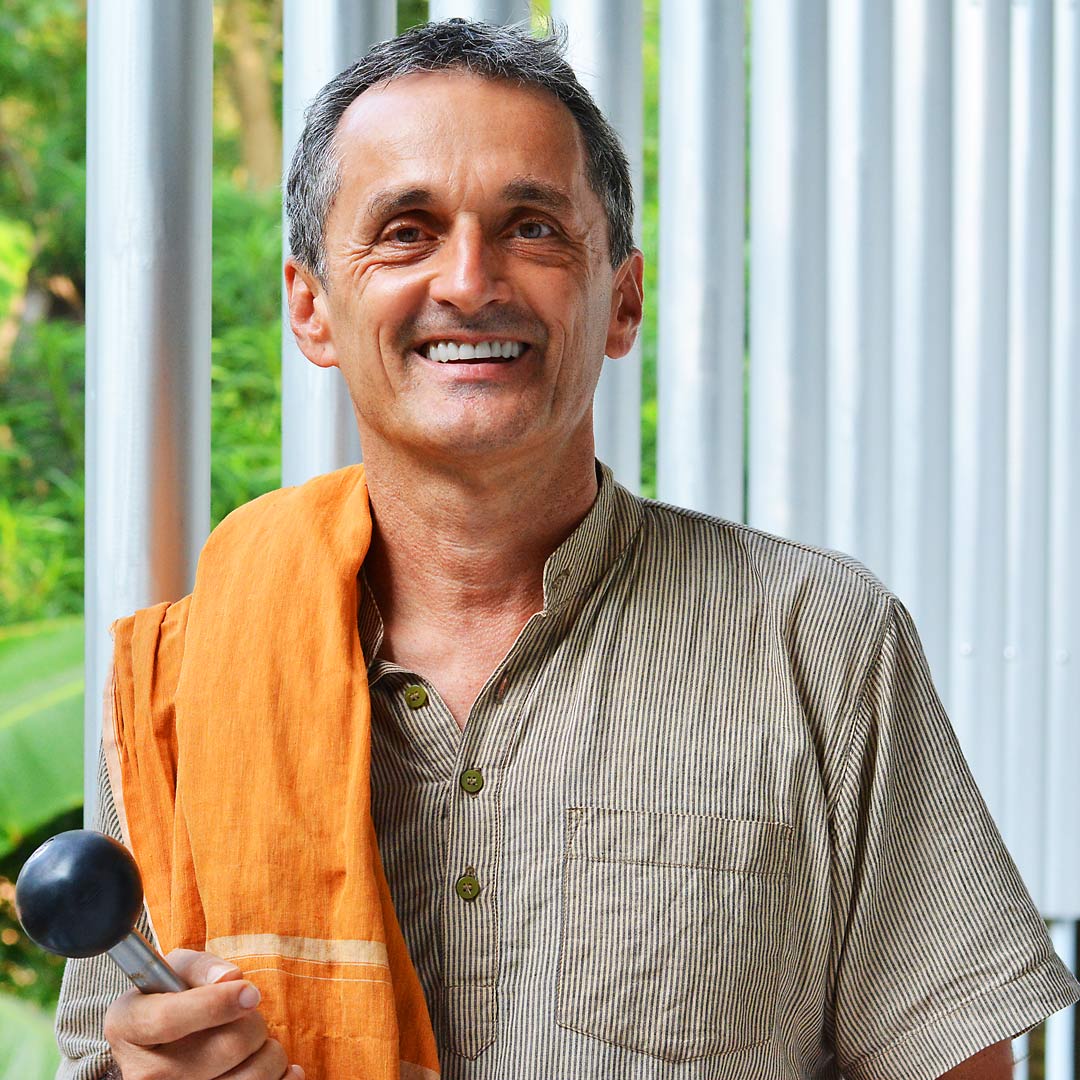
The Auroville unit Svaram crafts instruments, offers workshops, takes care of their beautiful Sound Garden, and does research in the field of sound healing. We managed to catch Svaram’s founder, Aurelio, on one of his busy days.
Connecting Sound with Knowledge
Aurelio has a long history with music and sounds, but making instruments came a little bit later. “I started in Australia, Sydney in 1984, where I learned to make a clay flute from a Japanese monk. I was part of a community that crafted different items by hand only. After returning to Austria I continued to make different kinds of sound items, and I was the first one to craft wind chimes in my home country. In the late 80s, I co-organized markets for arts and crafts that we held in old castles and towns. I continued crafting wind chimes, I had for example a range that were tuned after the I Ching, the oldest of the Chinese classics, also known as the oracle book. This was the point when I connected sound with knowledge, this is where for me the magic started.”
After returning to Auroville, Aurelio started Mohanam, a cultural centre in the village, in 2002. At the time the rate of unemployment in this area was close to 60%. The drive to make a livelihood with some of the boys there brought him to the next step in his instrument-making venture: “One of the boys, Karthik, he helped me to restore instruments, and he always bugged me that we could build a company to make instruments. So at some point I went to the US to a conference and I met a friend of mine that complained that he needed someone to build him a particular instrument. So I said, we can do that for you in South India for 100 Dollars. I returned with this money, saying: ‘We have our start-up fund.’”
Collaborative Design
To move from this first job towards creating a strong unit, Svaram was especially helped by different volunteers that came in and contributed their knowledge. “We had a German guy with us, Matthias, who did a pilot project with Karthik for 6 months crafting these singing stones – we still sell them today. After 6 months we had a final exhibition of their work together, and in one day we sold everything. So from that point onwards it was impossible for me to say: ‘No, we can’t continue.’” Aurelio then brought in Jan, an experienced carpenter who was training young adults from the surrounding villages. “Together we kind of did a three-year training for the building of instruments, with physics and math classes, musicology, computer science, and so on. In the end everyone had to craft an instrument, and Svaram was born.”
Nowadays, volunteers still come and contribute. “We have many volunteers with different areas of knowledge passing by, who teach us how to manufacture different instruments – for example, drums from Africa, Bamboo flutes, and so on. These are kind of co-creations.” For making something totally new, Aurelio can also rely on his team – the inventive talent of carpenter Jan and the skills of the guys who work at Svaram. “Personally, my favourite is to make string instruments. But at the end of the day, the beauty is less in the type of instrument and more in the material: Because we are experimenting with sound, we use all kinds of materials. Wood is our base, and then there are different types of metal, natural materials like bamboo, and stones that we use in different instruments. But for me the future is glass, let’s see what comes out of those experiments.”
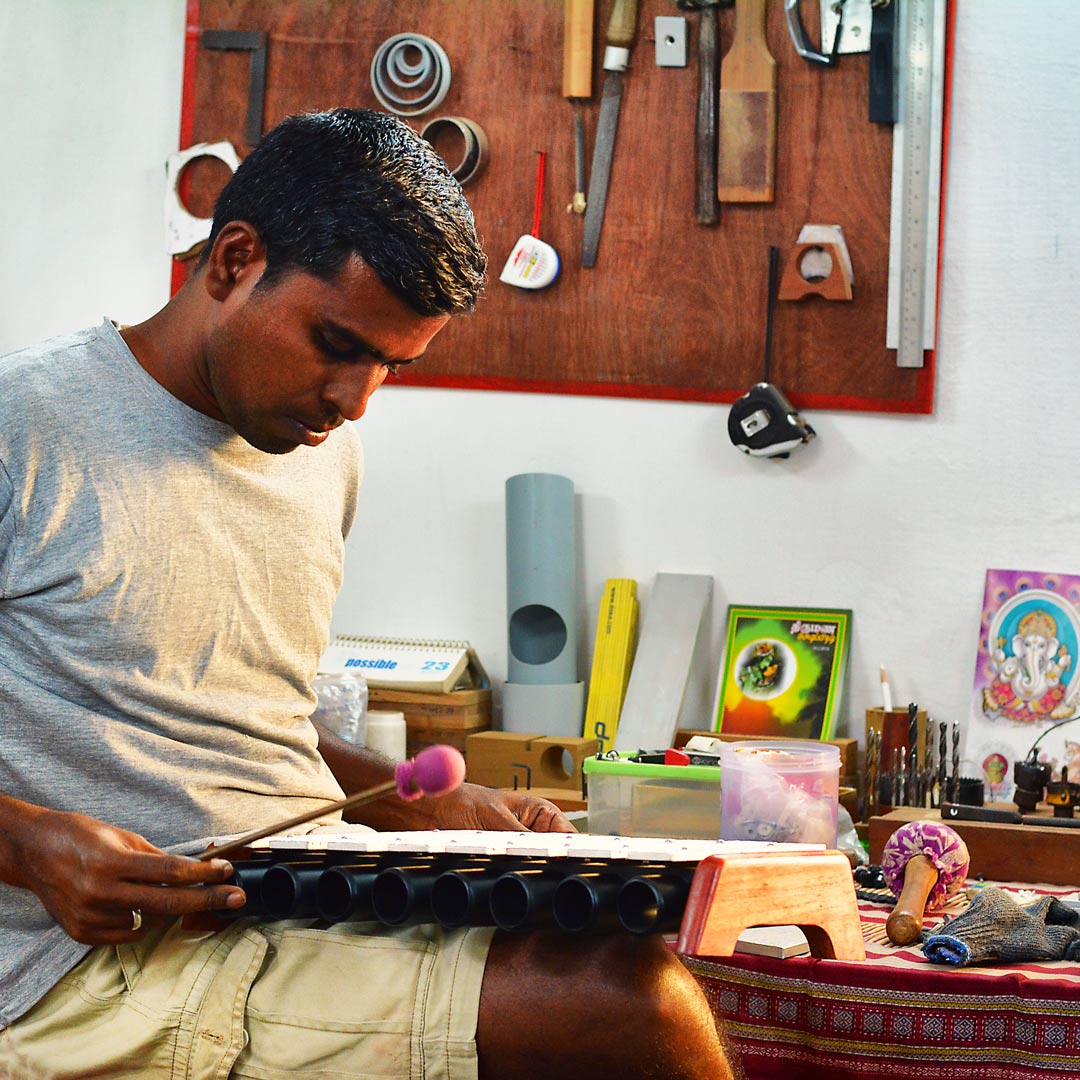
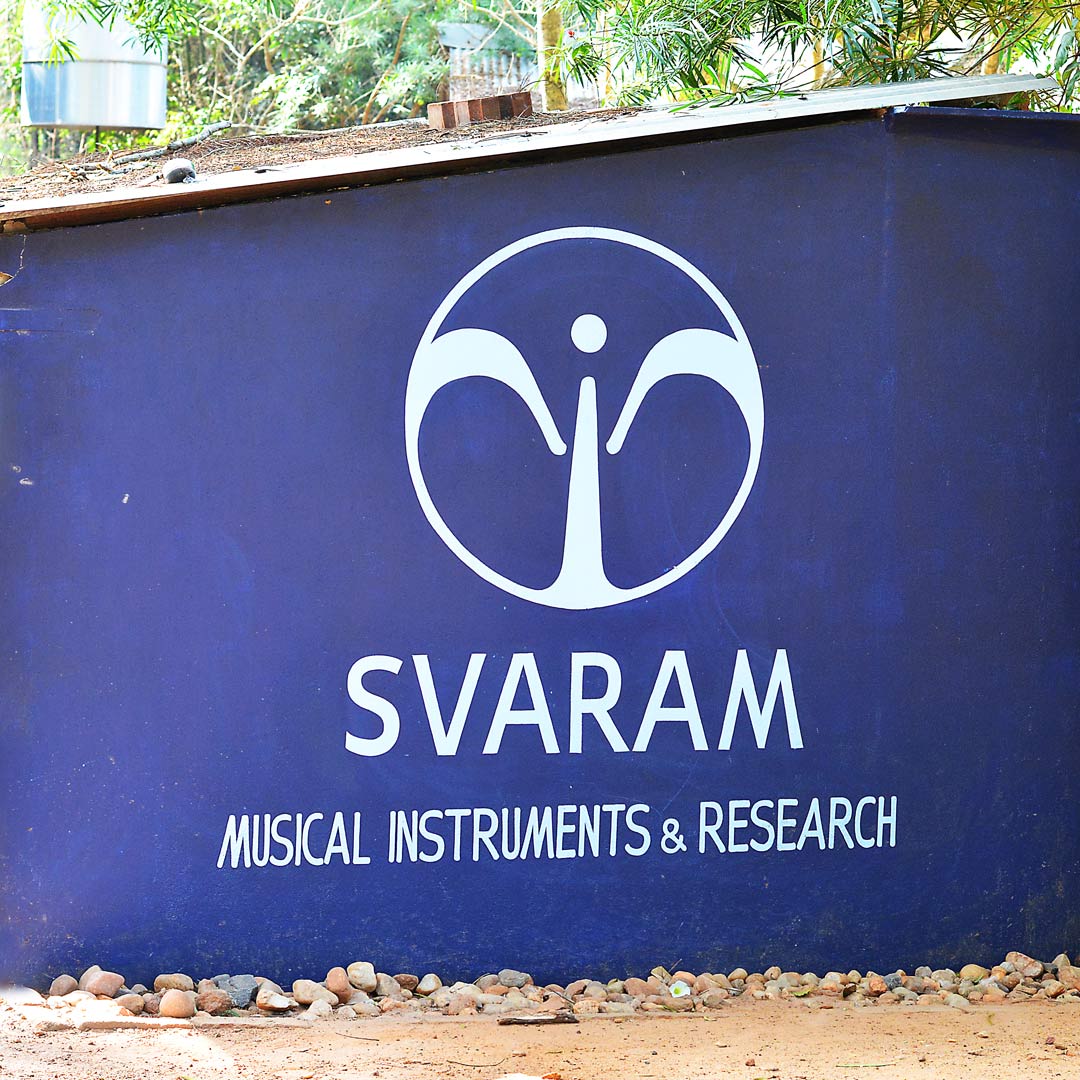
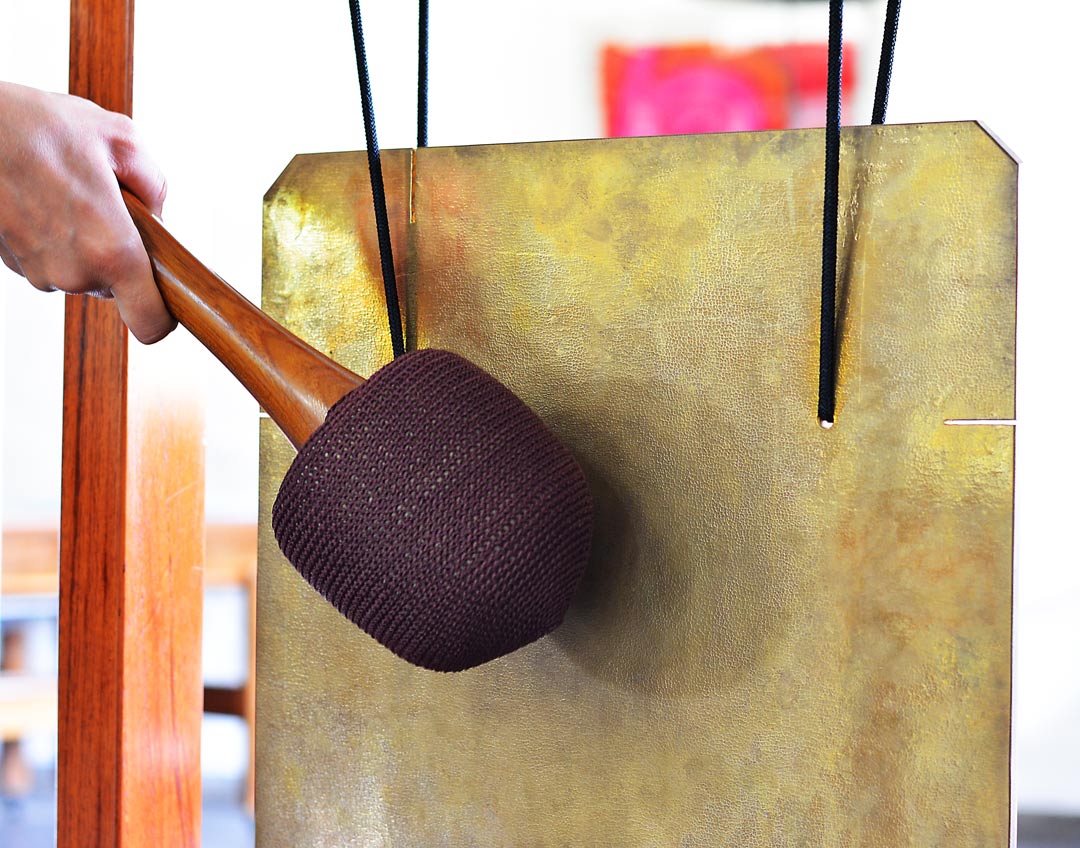
A Musical Campus for Auroville
Svaram is now planning to create a ‘musical campus’, a hub for collaboration on sound: “I call it a Musical Campus for the Craft, Arts and Science of Sound. My vision is to create an international hub for the research of building new instruments. In this regard, I am working together with people from all over the world, to discover and research the impact of sound and tunes in healing.” Sound healing, known as the field of psychoacoustics, is a branch of psychology that looks into the physiological effects of sound. While healing through sound is part of many ancient cultures, it is only recently that research using brain scans has started to support the idea that specific sounds can trigger processes in the body for mental and physical health.
With all these great plans, why stick to Auroville? “I got offers to create a campus, like the one we are planning, in France and South Korea, but I simply refuse. All of this only makes sense because I do it in Auroville, in connection with the Integral Yoga of Mother and Sri Aurobindo. I do this to explore and discover the sound and tunes in regard to the transformation that is the core of the Yoga. I need this as an inspiration. And of course the social factor of Auroville, the people I work with, wanting to make a change. If Auroville wouldn’t be here I think I would sit in a cave. Living in Auroville means constant progress. I still love this idea of Auroville being a laboratory, where we all experiment and do our part. And I feel it is okay that it bubbles, smokes and sometimes even explodes, it is worth the work for making a change and transforming something.”
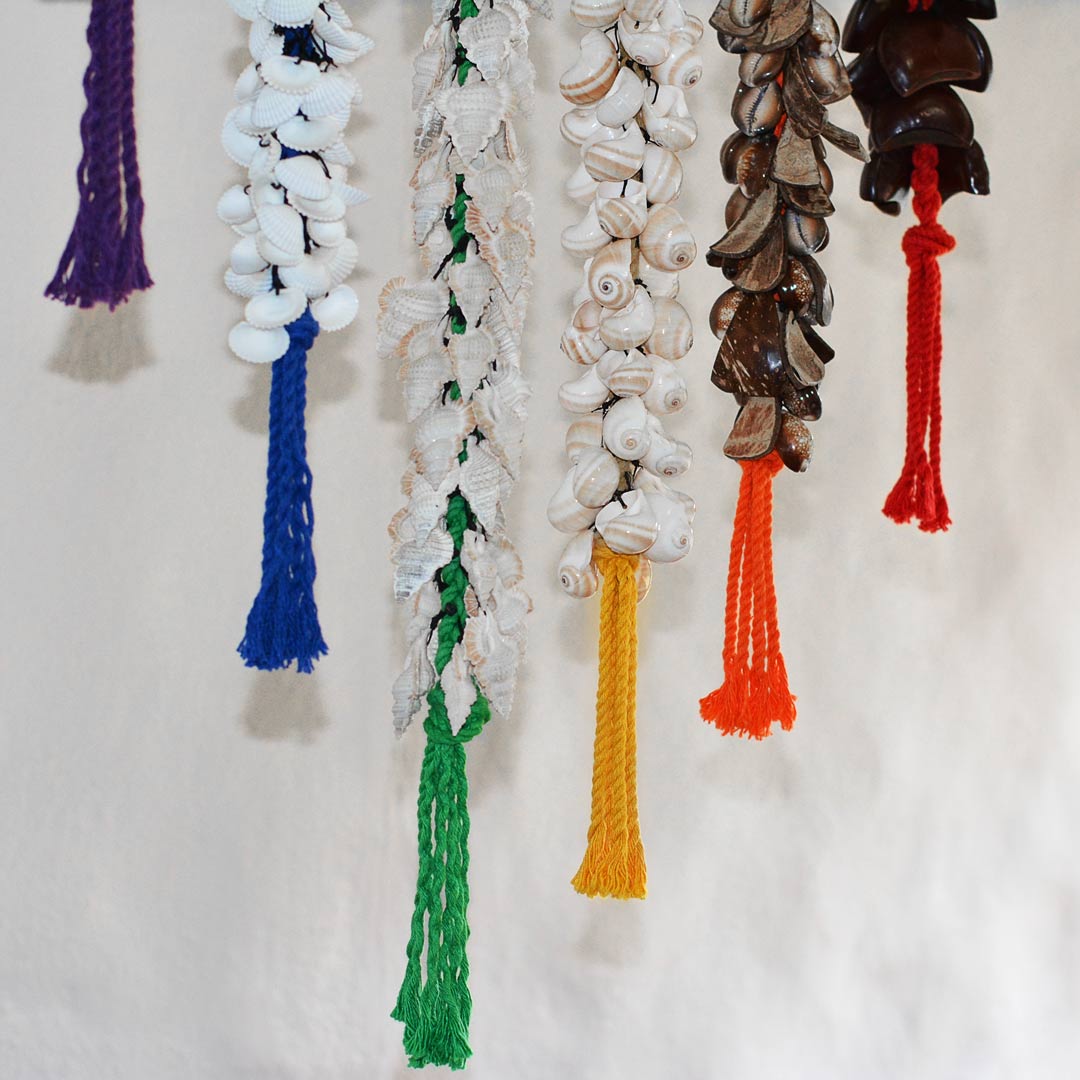
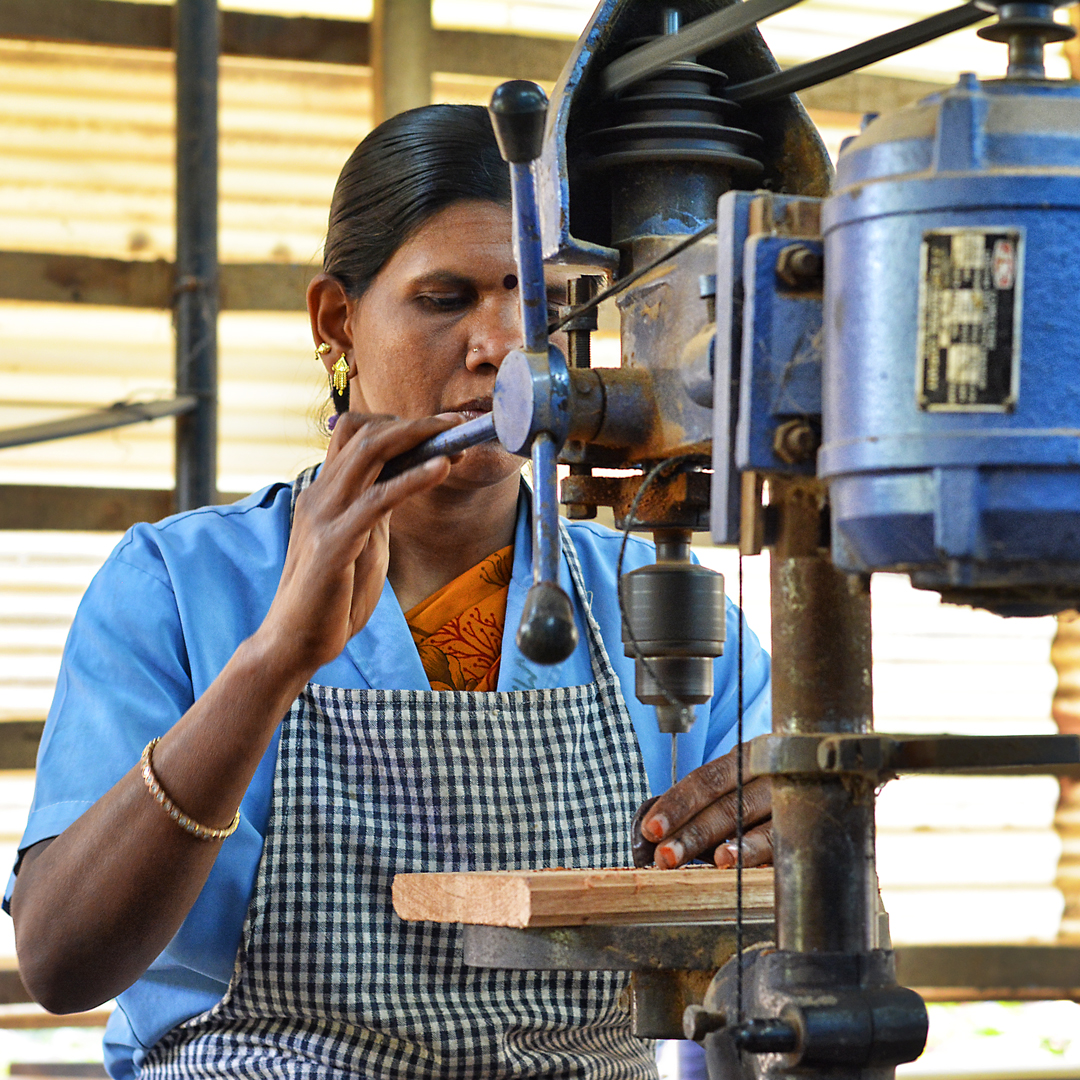
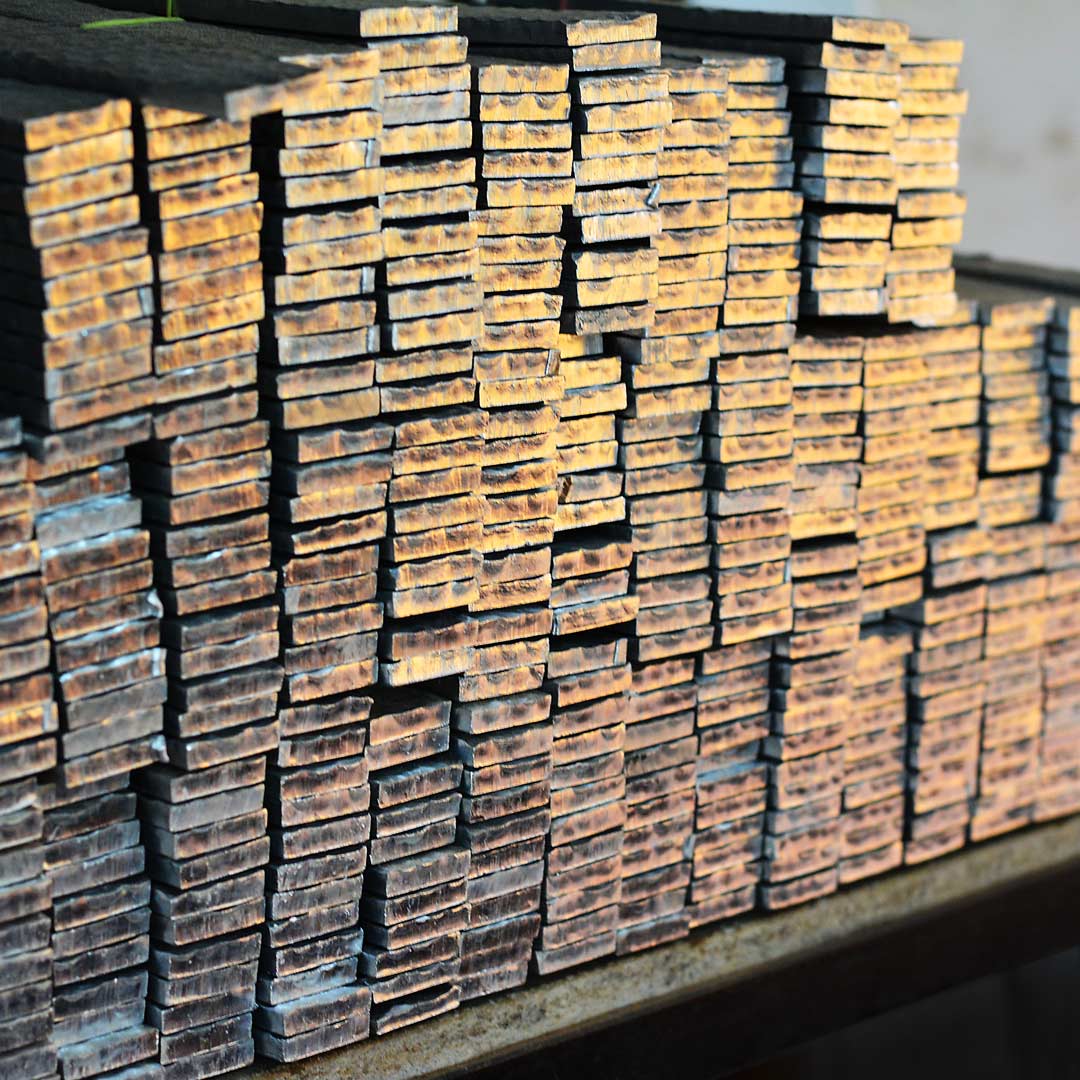
Want to know more about Svaram, follow a workshop, or volunteer? Check out their website.

